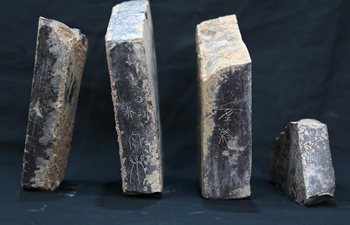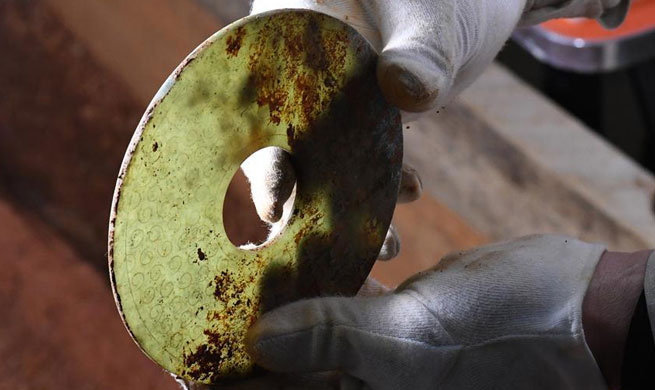DUBAI, Jan. 29 (Xinhua) -- The market for Gulf Arab bonds and Islamic bonds (Sukuk) achieved an all-time high issuance of 70 billion U.S. dollars in 2017, with sustained investor appetite expected in 2018, experts said on Monday.
Debt experts from Dubai's biggest lender Emirates NBD and Swiss portfolio management firm Fisch Asset Management said so at a media round table, presenting their co-authored study.
The paper, titled "The GCC (Gulf Co-operation Council) Fixed Income Market: Then and Now," said that 70 percent of all debt and Sukuk issuances were from sovereigns, while 30 percent were from corporations.
The six GCC countries are the oil and gas-rich states of Saudi Arabia, Kuwait, Bahrain, Qatar, the United Arab Emirates and Oman.
Regarding the outlook for 2018, increased debt issuance could continue in the region despite elevated geopolitical instability and a spate of sovereign rating downgrades, said Emirates NBD and Fisch Asset Management.
However, the study also said there are "emerging fears among investors that higher oil prices may blunt governments' commitment to economic reform."
The price of oil (Brent) hit over 71 dollars per barrel (159 liter) last week, a first since December 2014.
Earlier last year in November, the oil exporting countries of OPEC and its partners agreed to extend the output cut till the end of 2018, nine months longer than the previous agreement.
Twenty-four countries decided to maintain production cut of about 1.8 million barrels per day (bpd) until Dec. 31, 2018. Four of the six GCC countries are member states of the Organization of the Petroleum Exporting Countries (OPEC) in Vienna.
Philipp Good, CEO at Fisch Asset Management, said "deals in 2017 showed a clear trend towards a diversification of the investor base, indicative of a developing GCC bond market with a sophisticated variety of structures and maturities."
Acceleration in sovereign issuance was necessitated by a persistent need to fund twin deficits due to lower oil prices, he said, and was comfortably met by non-GCC investors who absorbed over 75 percent of the amount issued in the primary market.
Usman Ahmed, Head of Investments at Emirates NBD Asset Management, said growth of the GCC's debt investor base is expected to continue in 2018, with demand coming from the record inflows to emerging markets and supply provided by the "very real diversification needs of the region."
He added that "the GCC remains a solid value proposition for debt investors, with credit spreads attractive given current and projected credit fundamentals."
















